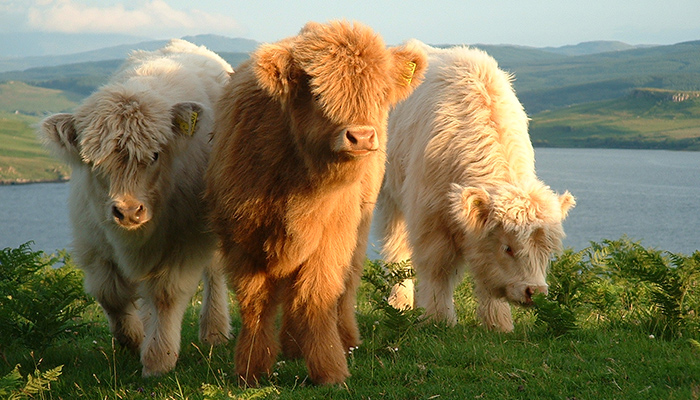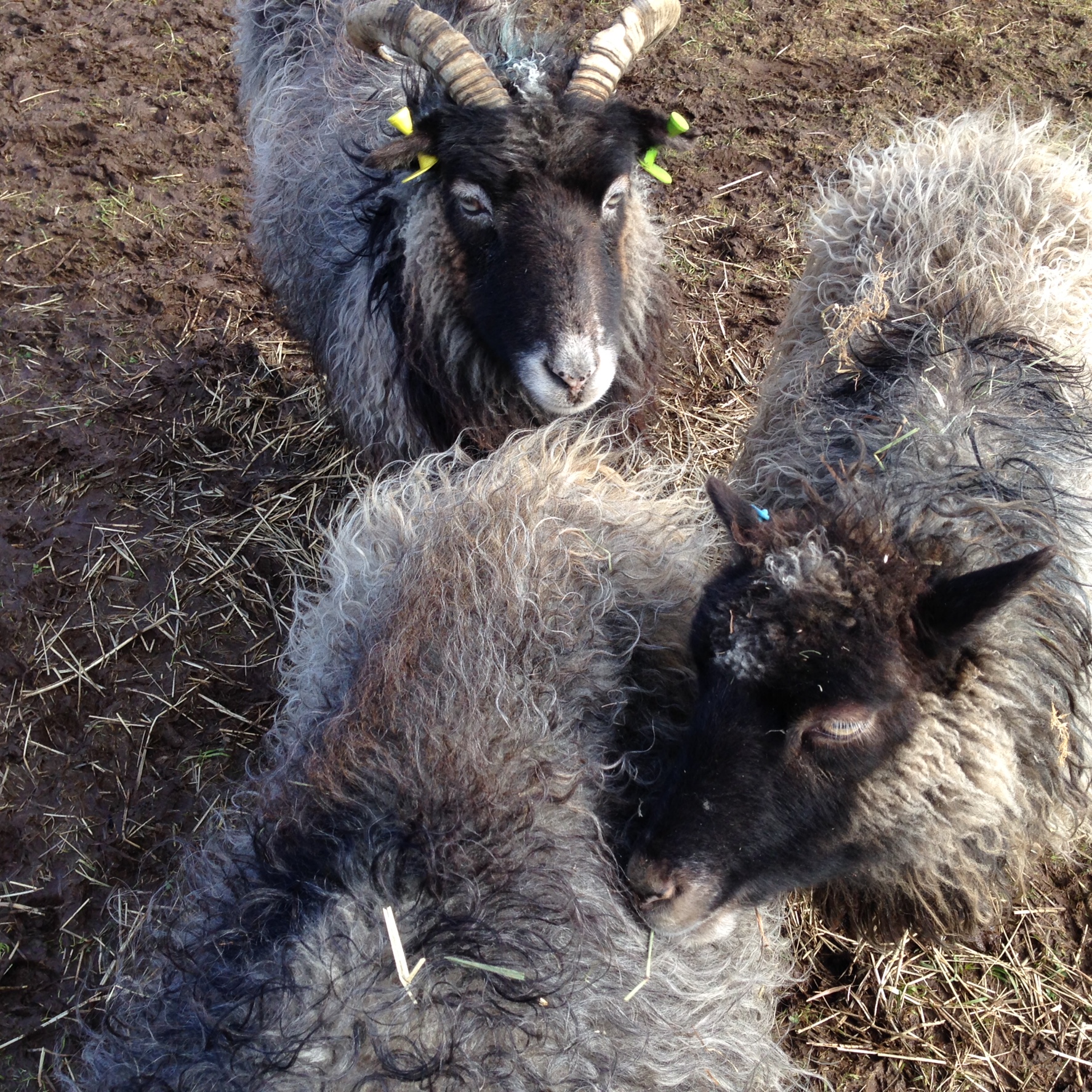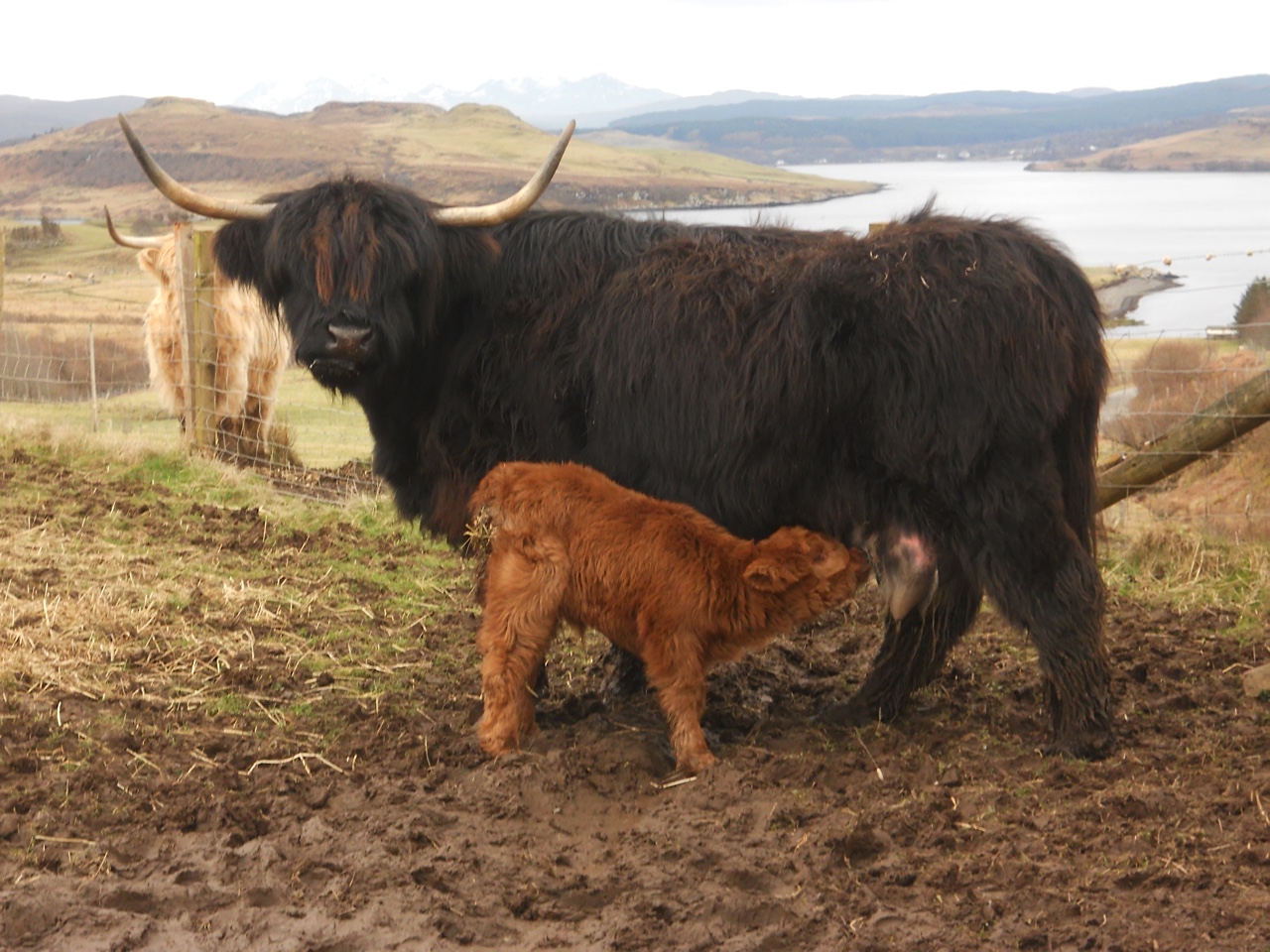Where did you get the idea for The Secret Dog?
It’s a long story.
In 2007, I visited Skye for the first time. We were there to stay with our friends Yvonne and Joe on their croft. I fell in love with the island, and with their croft, which had a small herd of highland cattle, and about two hundred sheep.
Joe, Yvonne’s husband, had worked for the BBC and then had gone up to help Calum (the name may be familiar to you!), Yvonne’s uncle, on the croft several years earlier. Though he was a city boy (born and bred in Glasgow), Joe loved the life on the croft, and when Calum died, Joe took over the running of the croft.
Much later, in my imagination at least, it became Josh’s home.
The View from Josh’s front door
One year when we were visiting, the island vet, Neil Stephenson, stopped by for a drink before going home to bed. The conversation, which went here and there, sparked a thought in my mind. “What would it be like for a city boy to suddenly find himself on a croft like this, far from anything he knew?” A bit later I thought, “what if he loved rescuing wild animals and wanted to be like the vet?”
These sorts of “what if’s” often spark a train of thought that leads to a story. In my case, there was one more “what if.” It arrived some months later. “What if the boy rescued a small dog and wanted to keep him, but his uncle had a “no pets” policy?”
The following year, while watching Joe’s dogs work his sheep, I heard about how the island men would Gather all the sheep on the commons to make sure they were free from disease. Instantly I thought, “Josh could try to train his dog for the Gathering!”
Now that I had the main plot points, I began to write The Secret Dog.
The Process of Writing
When I was young, I imagined good authors just started writing, finished their book and sent them straight to their publishers, from which they went on to be best sellers. I thought as the first drafts I wrote were not brilliant, I could never be an author.
Then I discovered rewriting. (This sounds like a hair colour advert!) Rewriting is what makes a decent book a good book and a good book great.
More than a half, maybe as much as two-thirds of my life as a writer is rewriting.
John Irving
I love rewriting because that is where and how you discover the story. It’s like you have this skeleton, and you get to put flesh on it and hair and clothes and really wonderful jewelry.
Carolina Leavitt
As the quotes show, a lot of rewriting is cutting — words, sentences, scenes, chapters – anything that detracts from the story you’re telling. It doesn’t matter if your description of a cherry tree in bloom is a work of art – if it slows down the story, it’s got to go. As perhaps the most famous rewriting quote goes: “You’ve got to kill your darlings (or babies).” William Faulkner.
It’s not just rewriting endlessly – what makes a book better is the quality of criticism you receive while rewriting. I’m a member of a writer’s critique group. We meet monthly and before we meet email chapters of what we’re currently working on to the other members of the group. They read them and come prepared to discuss ways we can improve what we’ve written.
I’m extremely fortunate in that the writers in my group — Candy Gourlay (http://www.candygourlay.com/), Cliff McNish (http://www.cliffmcnish.com) and Christina Vinali (as yet unpublished, but still a very good writer!) are very good at giving criticism and at making suggestions on how to improve things in my writing.
You’d be amazed at the difference between one of my first drafts and my final version!



